CIO vision 2025: Bridging the gap between BI and AI
Companies are eager to revamp their BI and leverage AI to increase efficiency and spark innovation, but data foundations increasingly become the bottleneck. See how executives approach those challenges and how they envision the world of data, analytics and AI in 2025.
In a survey of 600 CIOs, CDOs and CTOs from 14 industries and 18 countries globally, plus interviews with C-level executives from Procter & Gamble, Johnson & Johnson, Cummins, CNH Industrial, Walgreens Boots Alliance, S&P Global, Marks & Spencer, Tokio Marine, Virgin Australia and Freshworks, MIT Technology Review Insights uncovered these key findings:
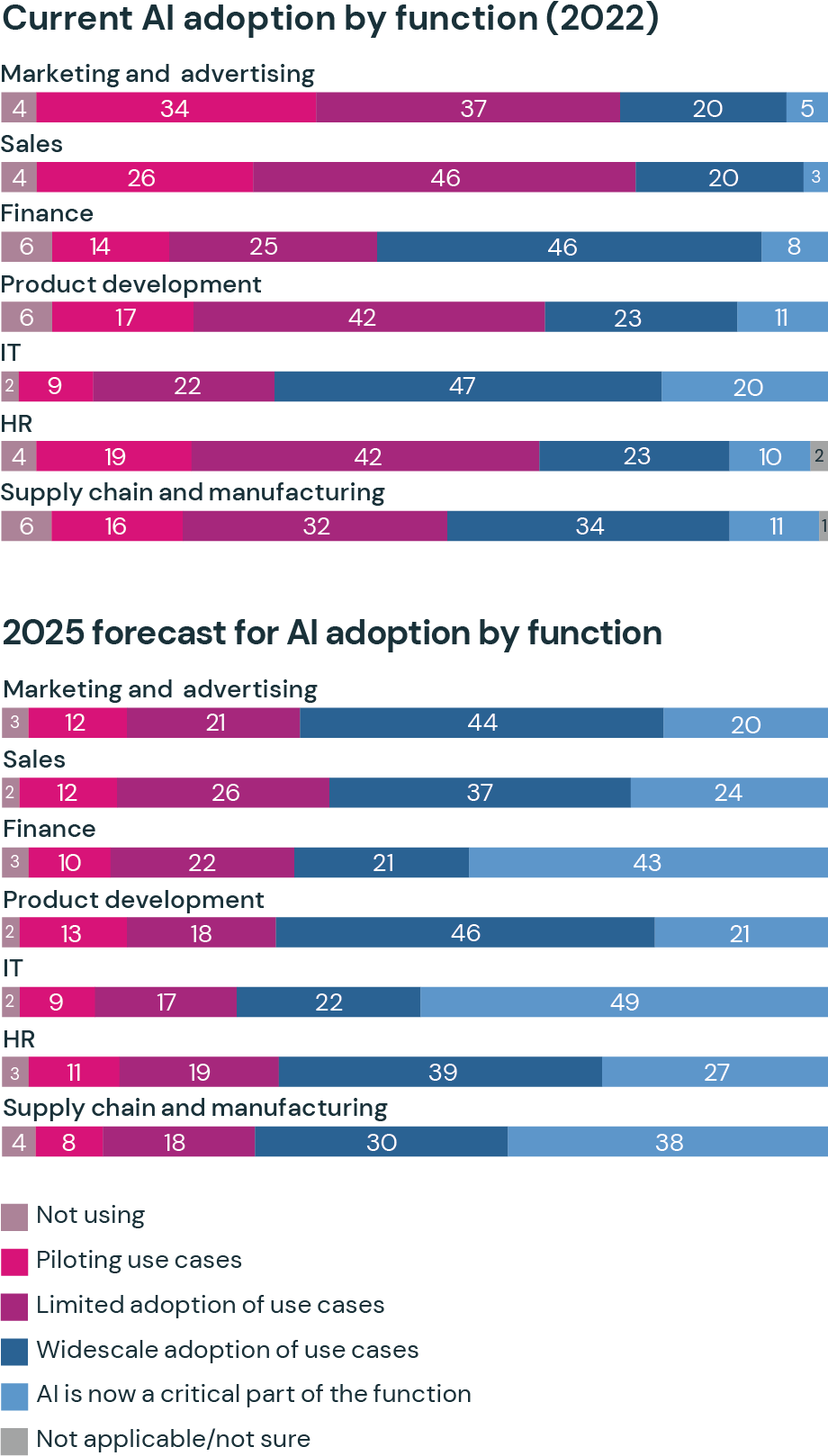
94% of CIOs say they are already using AI in LOB, and more than half expect AI to be widespread by 2025
In 2022, IT (67%) and Finance (54%) are the two core functions leading in AI adoption.
By 2025, IT (71%), Supply Chain (68%) and Product Development (67%) expect to adopt AI widely.
Figure 1: The extent of AI use in core functions of the business, today and expected in 2025 (% of respondents)
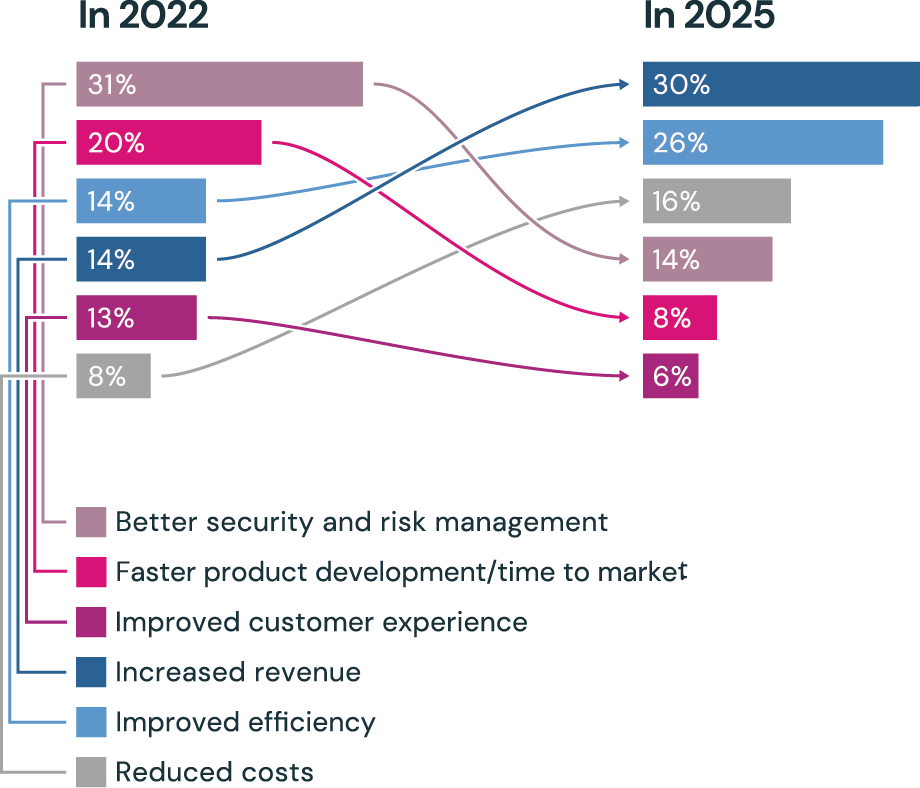
By 2025, CIOs expect revenue boost to be the most tangible benefit gained from AI
Figure 2: Ranking of the most tangible areas of benefit from AI use today, and expected in 2025 (% of respondents)
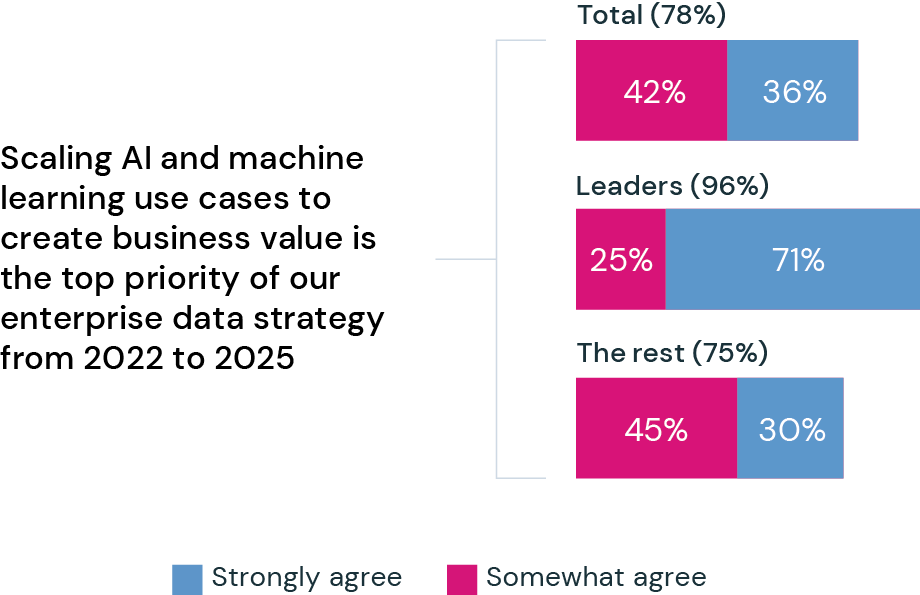
AI and data strategies are intertwined
78% of CIOs say scaling AI to create business value is the top priority of their enterprise data strategy, and 96% of AI leaders agree.
Figure 3: Data strategy and scaling AI (% of respondents agreeing with the statement)
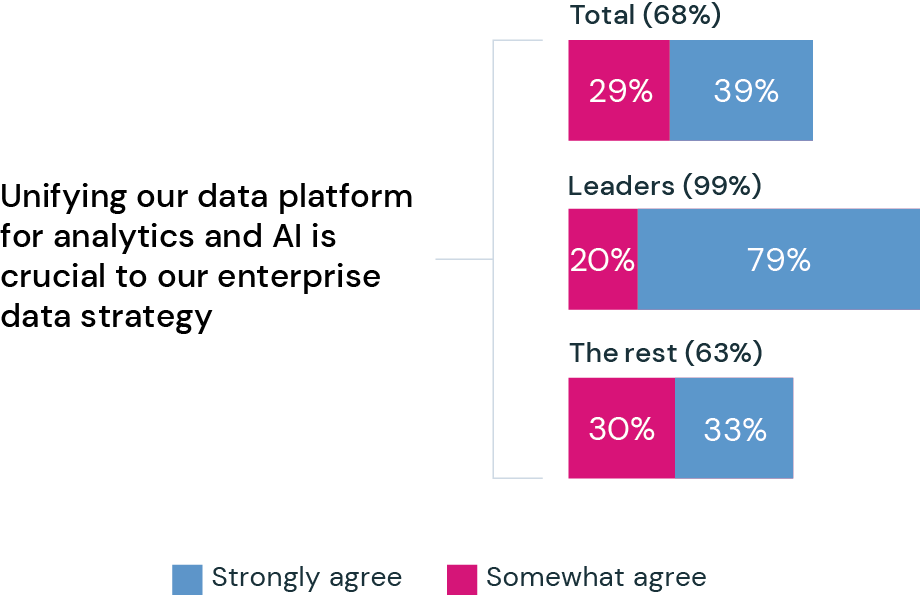
Almost every AI leader is seeking to unify the data platform for analytics and AI
72% of CIOs say that data challenges are the biggest factor jeopardizing AI success.
68% of CIOs and 99% of AI leaders say platform unification is crucial.
Figure 4: The importance of a unified data platform (% of respondents agreeing with the statement)

Multicloud and open standards are integral to AI success
72% of CIOs are using multicloud and 92% of AI leaders believe it ensures strategic flexibility.